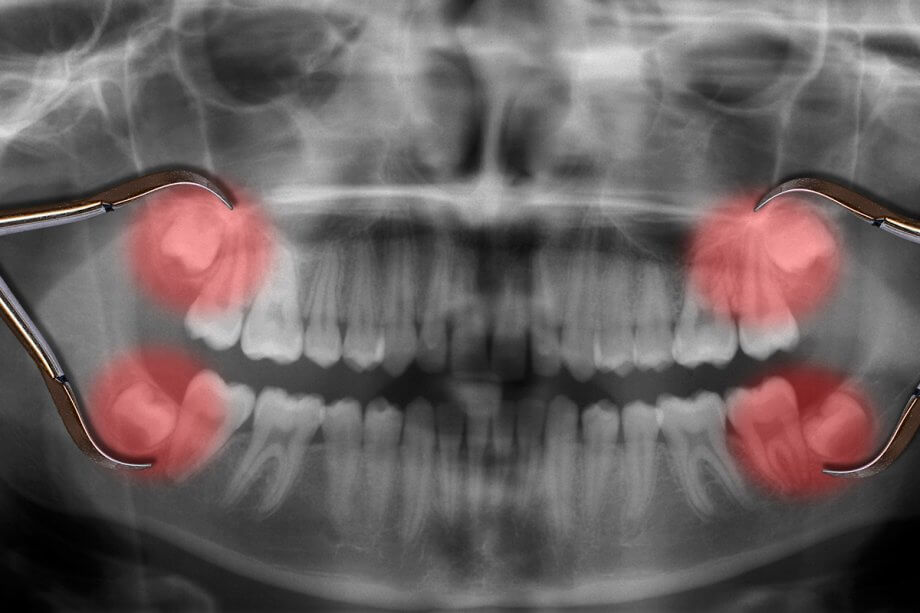More often than not, wisdom teeth cause problems for people. Rarely do they come in properly, making them a detriment to your dental health in a variety of ways. Wisdom teeth that crowd the other teeth or that are impacted will need to be removed. The good thing is that wisdom teeth are not necessary, as the other molars provide plenty of chewing capabilities for our modern day lives.
If you have an upcoming appointment to get your wisdom teeth extracted, you may be wondering what to expect afterwards. Here’s an overview of the recovery process to give you an idea of what you may experience after tooth extraction.
What to Expect Immediately After Wisdom Tooth Extraction
Your recovery immediately following wisdom tooth extraction will depend on the type of anesthesia you had for the procedure.
- After sedation. For wisdom teeth that are impacted or difficult to remove, your dentist may recommend a form of sedation. If you were placed under conscious oral sedation or IV sedation, you will need to rest for the remainder of the day following your procedure. You will most likely feel groggy or sleepy. A parent or loved one will need to drive you to and from your appointment in this case.
- After local anesthesia. If your wisdom teeth have come in through the gum tissue, it may be possible to have them removed with just local anesthesia. Similar to a cavity filling or other dental procedure, local anesthetic can be applied to the site of the extraction to numb the area while the teeth are removed. With local anesthesia you may feel well enough to drive yourself home. You may still want to rest for the remainder of the day depending on how you feel.
What to Expect in the Next Few Days After Extraction
Recovery from wisdom tooth extraction can take a few days. If you were sedated, you may need the following day to rest at home. If you had local anesthesia you may be ready to return to your regular activities the following day. Over the counter pain medication should be sufficient to manage any discomfort you may experience. Anti-inflammatory medications are typically the best kind for wisdom teeth recovery.
You will need to be careful about what you eat for the first 24-48 hours after the procedure. Liquids and soft foods are best for the first 24 hours. You can slowly work up to thicker foods as you feel ready. You will most likely have sutures in your gum tissue that will eventually dissolve or come out on their own. But it is important not to disturb the sutures before then because they are an important part of the healing process.
What to Eat and Drink After Wisdom Tooth Extraction
Here are some suggestions for what you can eat or drink while you recover from your extraction procedure:
- Protein drinks
- Smoothies
- Yogurt
- Jello
- Pudding
- Mashed potatoes
- Soup without chunks
- Cottage cheese
- Scrambled eggs
- Pasta
Let food and drink cool thoroughly before consuming. Cold foods and drinks are best to help reduce swelling and inflammation.
Avoid drinking from a straw for at least 3 days. The sucking motion can cause dry socket, a painful condition that occurs when the blood clot becomes dislodged after a tooth extraction, exposing the bone of the jaw and the nerves.
How Long Does Complete Healing Take?
For the gum tissue to heal following wisdom tooth extraction, the average timeframe is 2 weeks. You may need to allow up to a month in some cases before the tissue is fully and completely healed.
Total Dental Care Provides Wisdom Tooth Extraction
If you are among the majority who need to have their wisdom teeth removed, Total Dental Care provides this service. We offer a wide range of anesthesia and sedation options to make wisdom tooth extraction painless and stress-free.
Call 240-813-9111 or contact us today to learn more and schedule an appointment.

